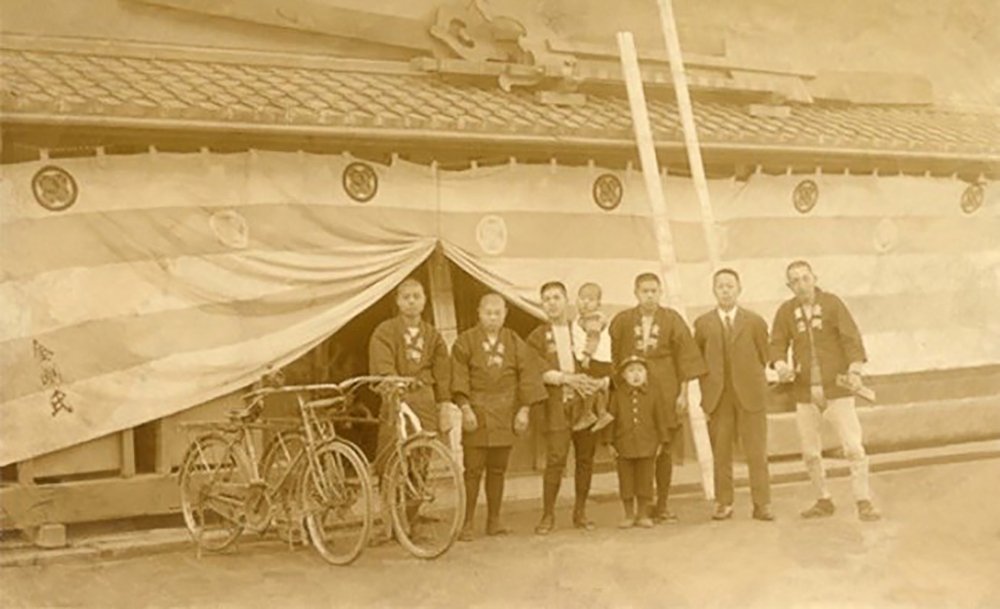How To Build A Business That Lasts For Centuries.
Image is claimed to be of Kongo Gumi workers from the early 20th century.
撮影者 不明 http://www.kongogumi.co.jp/enkaku.html, Public domain, via Wikimedia Commons
We no longer know how to build businesses that last for decades. Is it that we don’t know how? Or it’s just no longer possible?
Kongo Gumi was a Japanese construction company that lasted for 1428 years building Building Buddhist temples. The company held the record for the longest-sustaining business until 2006 when it was bought by Takamatsu Construction Group, which is itself between 60 -70 yrs old. The record for the oldest surviving company now belongs to one of either Hoshi Ryokan (hospitality) or Nishiyama Onsen Keiunkan (hot spring hotels). Both are ~1300 yrs old.
According to S&P, the average term of a company on the S&P 500 is ~20yrs. According to a McKinsey report, that term was ~61 yrs in the 1950’s. The average lifetime of a company post-IPO is ~8yrs, either as a result of bankruptcy, acquisition or going back private. It’s hard to fathom that the companies we adore today might not be around in the next 10yrs!
So what did Kongo Gumi do to last for 14 decades? What can we learn from Hoshi Ryokan? Here are 5 lessons for how to build a company that lasts for decades (at least) or even centuries.
Government and macro conditions matter more than we give it credit: Japan’s geopolitical stability over centuries provided a platform upon which these companies could thrive. We tend to talk bad about government but the role of government in providing an environment for company growth and sustainability is quite critical. The more fractured and unstable the leadership of a country, the less likely it is to build sustainable businesses. I can tell you this having grown up in a country where this has been the case for decades.
Be steeped in your history but be quick to adapt with the times: From building Buddhist temples to building palaces for royalty to building skyscrapers for businesses, Kongo Gumi maintained it’s focus on construction but recognized and adapted as the tides shifted around them. For Hoshi Ryokan, it was using earthquake proofing contraction methods on their buildings well before others to adopting online reservation technology to brand partnerships with Nintendo. Both these companies were family companies but were quick to bring in outsiders to keep the company fresh. Be rooted but be nimble.
Never abstract away the ‘service’ element of your business to purely technology. Not much to say on this one beyond the point that how you treat people (your team internally and your customers externally) is what makes a business successful for the long term.
Specialize to build a moat and to build a brand: Kongo Gumi stayed a construction company for 14 decades. 14 freaking centuries!! Hoshi Ryokan has been in hospitality for ~1300yrs! It gets tough to match the level of skill of a company that has been honing it’s expertise for decades let alone centuries! Especially if the company keeps adapting with the times like these did. Think about it, a company has been perfecting the art of (already accepted as world-class) Japanese hospitality for centuries!! Now that’s a brand.
Avoid risks that run counter to your company culture or values: Kongo Gumi sold to Takamatsu Construction Group in 2006 due to ballooning debt. The company was financially innovative, buying stocks on margin to fund expansion, but started to stray from the simple financial instruments it had used to keep itself in business for centuries. It bit off more than it could culturally chew. We know how that always ends up.
Simply put, the business skills and decision-making required to build a lasting company remain. We’ve just stopped paying attention to them with our short-termism. We can do better.
Are there any other lessons we can learn from these multi-century companies?


